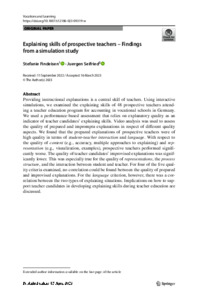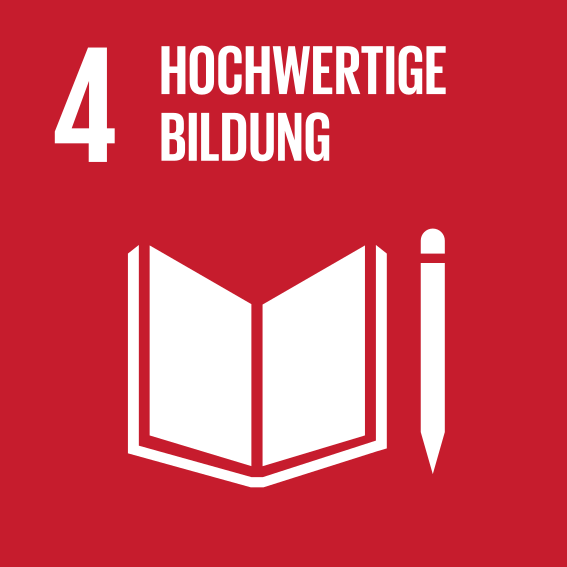|
Explaining skills of prospective teachers – Findings from a simulation study
Findeisen, Stefanie
;
Seifried, Jürgen
![[img]](https://madoc.bib.uni-mannheim.de/64340/1.hassmallThumbnailVersion/s12186-023-09319-w.pdf)  Vorschau |
|
PDF
s12186-023-09319-w.pdf
- Veröffentlichte Version
Download (1MB)
|
|
DOI:
|
https://doi.org/10.1007/s12186-023-09319-w
|
|
URL:
|
https://link.springer.com/article/10.1007/s12186-0...
|
|
Weitere URL:
|
https://www.researchgate.net/publication/369823063...
|
|
URN:
|
urn:nbn:de:bsz:180-madoc-643403
|
|
Dokumenttyp:
|
Zeitschriftenartikel
|
|
Erscheinungsjahr Online:
|
2023
|
|
Datum:
|
5 April 2023
|
|
Titel einer Zeitschrift oder einer Reihe:
|
Vocations and Learning
|
|
Band/Volume:
|
16
|
|
Heft/Issue:
|
2
|
|
Seitenbereich:
|
313-341
|
|
Ort der Veröffentlichung:
|
Dordrecht
|
|
Verlag:
|
Springer Netherlands
|
|
ISSN:
|
1874-785X , 1874-7868
|
|
Sprache der Veröffentlichung:
|
Englisch
|
|
Einrichtung:
|
Fakultät für Betriebswirtschaftslehre > Wirtschaftspädagogik, Berufliches Lehren und Lernen (Seifried 2012-)
|
|
Bereits vorhandene Lizenz:
|
 Creative Commons Namensnennung 4.0 International (CC BY 4.0) Creative Commons Namensnennung 4.0 International (CC BY 4.0)
|
|
Fachgebiet:
|
370 Erziehung, Schul- und Bildungswesen
|
|
Freie Schlagwörter (Englisch):
|
preservice teacher education , student teachers , instructional explanation , teaching quality , interactive simulation , business and economics education
|
|
Abstract:
|
Providing instructional explanations is a central skill of teachers. Using interactive simulations, we examined the explaining skills of 48 prospective teachers attending a teacher education program for accounting in vocational schools in Germany. We used a performance-based assessment that relies on explanatory quality as an indicator of teacher candidates’ explaining skills. Video analysis was used to assess the quality of prepared and impromptu explanations in respect of different quality aspects. We found that the prepared explanations of prospective teachers were of high quality in terms of student–teacher interaction and language. With respect to the quality of content (e.g., accuracy, multiple approaches to explaining) and representation (e.g., visualization, examples), prospective teachers performed significantly worse. The quality of teacher candidates’ improvised explanations was significantly lower. This was especially true for the quality of representations, the process structure, and the interaction between student and teacher. For four of the five quality criteria examined, no correlation could be found between the quality of prepared and improvised explanations. For the language criterion, however, there was a correlation between the two types of explaining situations. Implications on how to support teacher candidates in developing explaining skills during teacher education are discussed.
|

 | Dieser Eintrag ist Teil der Universitätsbibliographie. |
 | Das Dokument wird vom Publikationsserver der Universitätsbibliothek Mannheim bereitgestellt. |
 | Diese Publikation ist bisher nur Online erschienen. Diese Publikation nun als "Jetzt in Print erschienen" melden. |
 Suche Autoren in Suche Autoren in
Sie haben einen Fehler gefunden? Teilen Sie uns Ihren Korrekturwunsch bitte hier mit: E-Mail
Actions (login required)
 |
Eintrag anzeigen |
|
|
 ORCID: 0000-0001-9203-2023 ; Seifried, Jürgen
ORCID: 0000-0001-9203-2023 ; Seifried, Jürgen  ORCID: 0000-0002-9460-7721
ORCID: 0000-0002-9460-7721



 Creative Commons Namensnennung 4.0 International (CC BY 4.0)
Creative Commons Namensnennung 4.0 International (CC BY 4.0)
 Suche Autoren in
Suche Autoren in